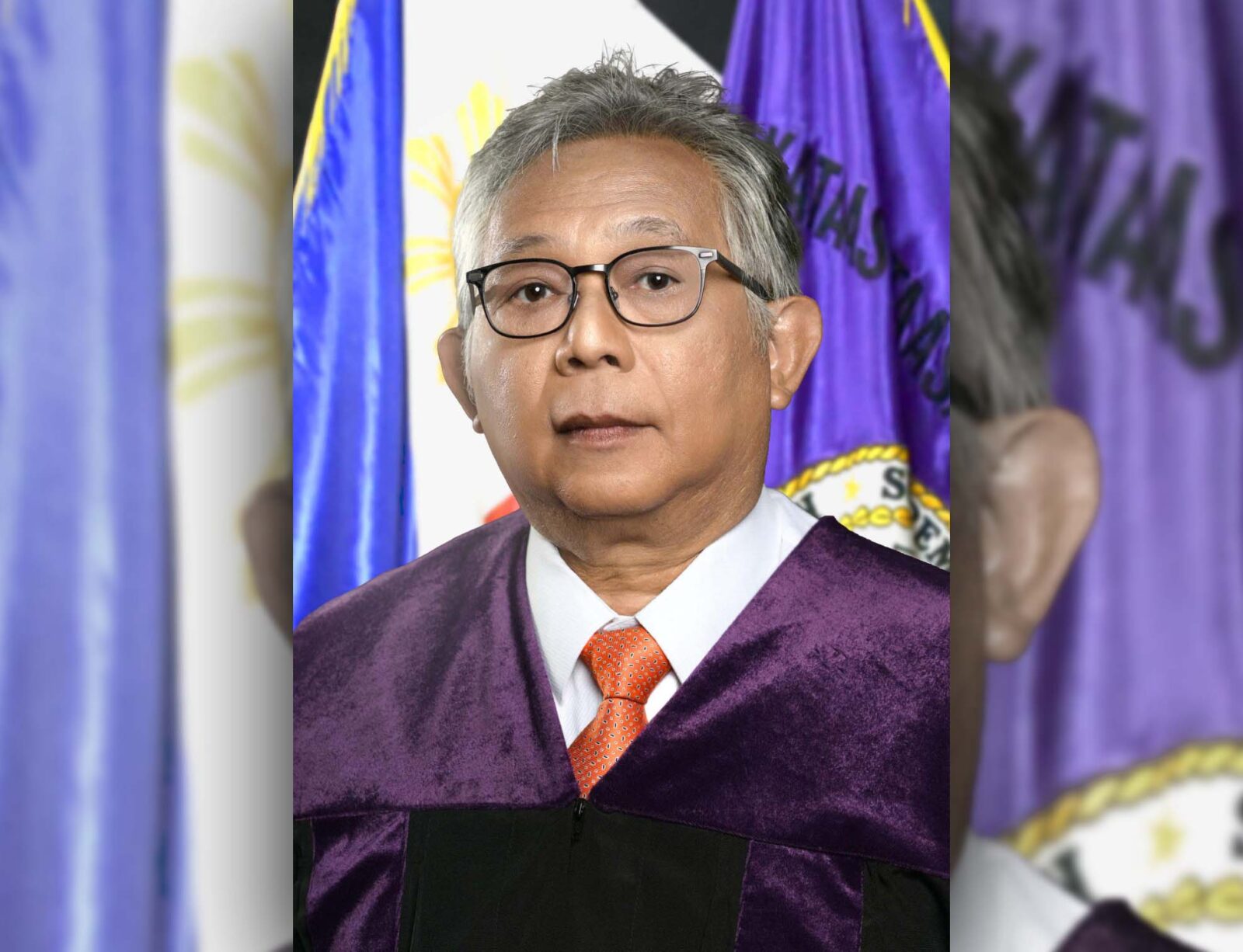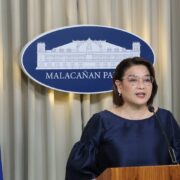SC justice questions Congress’ right to decide PhilHealth budget

Supreme Court Associate Justice Alfredo Benjamin Caguioa on Tuesday questioned the discretion of Congress in determining the appropriation for the Philippine Health Insurance Corp. (PhilHealth) when crafting the yearly national budget.
At the resumption of oral arguments on the controversial transfer of P89.9 billion in excess funds from the state health insurer to the national treasury, Caguioa scrutinized the Office of the Solicitor General’s argument that lawmakers have the responsibility to set PhilHealth’s annual allocation in the General Appropriations Act (GAA), with the latter citing Sections 10 and 37 of the Universal Health Care Act (UHA) and Section 44 of Executive Order No. 292.
Section 37 of the UHA states that “the amount necessary to implement the provisions of the Act shall be included in the GAA and shall be appropriated under the DOH (Department of Health) and the national government subsidy to PhilHealth.”
“And that is where I have problems with your reasoning. Because your interpretation of these provisions totally destroys the mandates of the sin tax laws and the Universal Health Care Act to deliver such funds to PhilHealth for the specific purpose of implementing the Universal Health Care. I’m telling you, that’s my problem,” Caguioa told Solicitor General Menardo Guevarra.
Bicam panel insertion
He said four laws related to sin taxes (Republic Act No. 9334, RA 10351, RA 11346 and RA 11467) explicitly state that a portion of the revenues “shall be allocated” and “used exclusively” for the UHA.
“Sin tax laws already determine the source and use of funds to implement the Universal Health Care Act. Even if the funds pass through the GAA, their character as earmarked for a special purpose remains intact,” Caguioa emphasized.
His interpellation also delved into the legislative process, particularly the insertion of Section 1(d) of XLIII in the 2024 GAA, which was absent in the House and Senate versions but emerged in the bicameral conference committee, which is tasked to reconcile differences in the two chamber’s budget bills.
The provision allows the use of unprogrammed appropriations by returning excess reserve funds of government-owned and -controlled corporations (GOCCs) to the national treasury.
“We have seen the many years from 2003 all the way up to 2019 of discussions, staff work, interpellations, deliberations, extensive and thorough study—in order to come up with a Universal Health Care Act. A law that, in my view, has a particularly good design in establishing funding and sustainability. And all of that, all of it, gets undone by a one-sentence insertion in the 2024 GAA. Don’t you think there is something wrong [with] that?” Caguioa said.
Tuesday’s hearing tackled key issues raised in three consolidated petitions questioning the constitutionality of this particular provision in the 2024 GAA and Department of Finance Circular No. 003-2024 that ordered the PhilHealth fund transfer.
Lopez’s experience
The petitions were filed separately by 1Sambayan Coalition et al. (GR No. 276233), Sen. Aquilino Pimentel et al. v. House of Representatives et al. (GR No. 274778) and Bayan Muna chair Neri Colmenares et al. v. President Ferdinand Romualdez Marcos (GR No. 275405).
Supreme Court Associate Justice Jhosep Lopez, for his part, zeroed in on PhilHealth’s case rate, or the amount it shoulders for medical expenses of its members.
During the hearing in Baguio City, he shared his own experience of being diagnosed with esophageal cancer that later spread to his lungs two years ago.
Lopez disclosed that he was hospitalized for more than two months in Metro Manila, accumulating a bill of nearly P7 million.
However, PhilHealth only covered P50,000, or just 0.7 percent of his total expenses.
His financial ordeal did not end there, Lopez said, as he had to undergo a regular procedure called dilation to expand his throat and esophagus, costing him around P40,000 per session.
“And again, I went to see PhilHealth. Personally, I asked how much can be covered by PhilHealth. And PhilHealth told me, I ran out of money. They cannot answer any of the P40,000 … despite the fact that I’ve been regularly paying PhilHealth for the last—how long has it been in existence? I’ve been in government service for more than 40 years,” Lopez said.
Interpellating PhilHealth senior vice president Renato Limsiaco Jr., Lopez underscored the goal of the UHA to minimize out-of-pocket expenses for Filipino families and ensure they do not suffer financial distress due to illness.
When asked about PhilHealth’s average case rate coverage, Limsiaco said it has been increasing—by 30 percent in February 2024 and another 50 percent by December 2024.
Lopez welcomed the development, calling it good news for PhilHealth members.
“I just got sick at the wrong time. I should have gotten sick now rather than before,” he said.
The hearing concluded around 5 p.m. yesterday and is set to resume at 10 a.m. today.
Chief Justice Alexander Gesmundo said the case would be tackled the entire day in the hopes of finally concluding the oral arguments.
Protest
Hours before the hearing, health-care workers’ group Health Alliance for Democracy (HEAD), civil society organization Tongtongan Ti Umili and other Baguio-based organizations staged a protest outside the Supreme Court in Baguio City calling on the justices to declare the transfer of excess PhilHealth funds as illegal and unconstitutional.
“These funds taken should be returned immediately and be used to lower premium contributions and increase benefits for members,” HEAD secretary general Albert Pascual said.
According to the groups, the massive funds in PhilHealth have become a “cash cow and source of corruption.”
“The government is passing its responsibility for health care onto individual members instead of funding public hospitals. Benefits are insufficient, fees are expensive,and health care services remain inaccessible even if contributions to PhilHealth are fully paid by members,” Pascual said.
In a statement, the Health Workers Party-List maintained that the transfer of the PhilHealth funds to the national treasury to fund unprogrammed items outside health was in violation of the Universal Health Care Act. —WITH REPORTS FROM DEXTER CABALZA AND VINCENT CABREZA

















